Collapsible content

What is eczema?
Eczema is a common allergic skin disease. The term generally refers to persistent and recurrent rashes that typically appear on the face, wrists, fingers, elbows, and inner knees, but can also occur on the calves and thighs, and in more severe cases, all over the body. Eczema is characterized by itching, dryness, redness, swelling, and inflammation. It may also cause scabbing, flaking, blistering, cracking, bleeding, or oozing. Healing areas may sometimes experience temporary discoloration and pigmentation. With proper treatment, scarring is generally not expected.
Eczema flare-ups can cause unbearable itching and sleeplessness. In severe cases, it can lead to feelings of inferiority, affecting social interactions and disrupting daily life, studies, and careers. Some patients may even require psychological counseling.
Eczema is very common, affecting approximately 10% of the population in Hong Kong. While it can affect anyone of any age, it is most common in infants and children, with up to 10%-15% of children experiencing it. In many cases, eczema is caused by an allergic skin reaction, particularly in children.
What causes eczema?
While the exact cause of eczema remains unknown, it generally involves a sensitivity of the skin to certain substances. Eczema can be categorized as either acute or chronic. In chronic eczema, eczema is caused by internal factors, which manifest externally. The internal causes of eczema vary widely, and the external symptoms can also vary from person to person. Atopic eczema (also known as childhood eczema or atopic dermatitis) is believed to be hereditary and often occurs in infants with a family history of allergies, nasal allergies, or asthma. An easily noticeable, itchy rash can appear on the face, scalp, neck, inner wrists, backs of the knees, and buttocks. Eczema often runs in family members due to genetic changes, although the details of these genetic changes are still not fully understood.
Seasonal eczema (dyshidrosis): Eczema caused by the hot, sweaty weather of spring and summer, also known as dyshidrosis, is a type of eczema that typically occurs on the hands and feet. Small, transparent, pearly blisters, ranging from 1 to 5 mm in size, occasionally become larger, appear on the palms, sides of the fingers, and soles of the feet. These blisters are typically 1 to 5 mm in size, with larger blisters occasionally occurring. Moderate to severe itching is typically associated with itching. The itching is typically most severe when the blisters first appear, but they typically subside within 2 to 3 weeks. Afterward, the itching subsides, and circular scaling or peeling gradually develops. Stifling heat and intense summer sun are among the triggers of dyshidrosis. Localized excessive sweating is believed to be a key factor, leading to dyshidrosis occurring most frequently in late spring and summer. It can also be associated with emotional stress. Itching is typically most severe during acute episodes, often leading to compulsive scratching and rubbing. This can lead to skin breakage and secondary bacterial infection. Pain or tenderness can occur if the skin is broken or a secondary bacterial infection develops.
Seasonal eczema (liposuction-deficient eczema): The changing of seasons is a major challenge for eczema sufferers, especially the dry seasons of autumn and winter. Winter eczema, also known as lipidosuction-deficient eczema, is caused by a decrease in lipids on the skin's surface, leading to dryness and damage.
Housewife's eczema (also known as dyshidrosis or progressive palmar keratosis): It often occurs in people who frequently come into contact with water and irritants, such as housewives, hairdressers, and cement workers. It develops on the fingers and palms, usually beginning at the wrists. Small blisters develop on the fingers, becoming thicker and more keratinized. In severe cases, the skin becomes dry, flaky, and even cracked and bleeding. This is generally believed to be due to an allergic reaction.
Allergy to allergens: The patient's immune system becomes abnormally sensitive, leading to sensitivity to certain substances in the environment or food (called "allergens"). Allergens vary from person to person, but common allergens include household dust mites, harsh cleaning agents or chemicals, soaps, perfumes, pollen, animal hair, wool clothing, plastics, rubber products, artificial leather products, and man-made building components.
Dietary factors: Artificial foods containing various chemical ingredients, MSG, milk, eggs, peanuts, and seafood are often considered allergens for eczema. Some individuals experience exacerbations of eczema after consuming white sugar, white rice, and white bread. Personal factors: Emotional stress, lack of rest, sleeplessness, weakened immunity, and substance abuse can all exacerbate eczema symptoms. Chronic gastrointestinal diseases, chronic alcoholism, intestinal parasites, metabolic disorders, and endocrine disorders are also contributing factors to eczema.
Is eczema contagious?
Eczema is not contagious. It is caused by the active immune system affecting the skin, not by bacteria or viruses.
How to improve eczema?
In terms of personal care, pay attention to skin hygiene, trim your nails regularly, avoid scratching, and change your bed frequently. Do not shower for too long, use moderate water temperature, avoid using chemical soaps, and use mild body wash instead. Keep your skin moisturized.
Regarding diet, eczema patients should avoid alcohol, beef, nuts, seafood, fried and spicy foods, milk, eggs, artificial colorings, and preserved foods to reduce skin irritation. If the allergens that cause eczema can be identified, contact with the allergenic items and consumption of the allergenic foods and related products can be avoided.
In terms of clothing, since hot and humid weather can also trigger eczema, patients should avoid wearing woolen underwear and nylon jerseys; in hot and humid weather, try to stay in an air-conditioned environment with a moderate temperature to keep the skin cool.
Keep your home clean and avoid carpets, animal hair, pollen-producing plants, and furry toys. Many common household chemicals, cleaners, and disinfectants can irritate the skin and worsen eczema. Patients should use products designed for sensitive skin, preferably organic ones.
Get enough sleep and rest, and keep a cheerful mood to avoid affecting your immunity due to overwork, lack of rest, emotional and stress problems.
What are the treatments for eczema?
Try to avoid contact with allergens, drink plenty of water, and improve your body's immunity.
Applying a natural, organic eczema moisturizer can help keep your skin moisturized and hydrated, preventing dryness. Organic eczema moisturizers contain ingredients that soothe and repair damaged skin, reducing itchiness and redness, and accelerating the healing process.
Traditional Chinese medicine treatment can improve physical fitness, but it cannot quickly relieve acute itching and redness and swelling.
Steroid ointments, but continued use may cause permanent damage to the skin, such as thinning of the skin or the appearance of orange peel.
Antibiotics and disinfectants are used to treat skin infections, but repeated use can lead to the loss of effectiveness. Improper use can also cause allergic reactions. Studies have shown that many clinical pathogens in Hong Kong have a high rate of drug resistance, which is largely due to the overuse of antibiotics in Hong Kong.
There are also antihistamines that can combat allergy symptoms, but they commonly cause drug resistance, drowsiness, possible headaches, and gastrointestinal discomfort.
Can eczema be cured?
For infants and children with eczema, 60-70% of cases can be cured with proper treatment as the child grows. For others, eczema is an allergic skin disease with complex etiologies, and conventional Chinese and Western medicine can only alleviate symptoms. Identifying the cause of individual eczema, avoiding allergens and foods that trigger allergies, boosting immunity, and maintaining a relaxed mind and body can reduce the chance of recurrence.
Stay away from allergenic parabens

What exactly are parabens?
Parabens, chemically known as "paraben," are inexpensive synthetic preservatives widely used in skincare products, skincare, and cosmetics. The five most common parabens are: methylparaben, ethylparaben, propylparaben, butylparaben, and isobutylparaben.
Why are Parabens added to some skincare products?
From production to use, products face numerous opportunities for bacterial and mold contamination under normal circumstances. Parabens can inhibit the growth of microorganisms in products. Compared to other preservatives, parabens are less toxic. Therefore, to maintain cost control and meet production requirements, many skincare products, even those for babies, incorporate parabens to extend their shelf life.
Is there any problem with long-term use of care products containing Parabens preservatives?
Studies have confirmed that even if parabens are not extremely toxic, long-term use of skincare products containing them can leave residue on the skin and potentially cause contact dermatitis. The greater the accumulation of parabens, the greater the damage to the stratum corneum and skin cells, increasing the chance of allergic reactions. Even if healthy skin does not experience short-term sensitivity, long-term use may cause it. Those allergic to these preservatives should pay special attention to the ingredient list and avoid using products containing parabens.
Effects of preservatives on skin
Stimulate the skin and accelerate the formation of bad pigments
Studies have shown that preservatives can stimulate the production of harmful pigments and accelerate aging.
Hindering the effectiveness of care ingredients
Taking moisturizing products as an example, if preservatives are added, the effectiveness of the moisturizing ingredients will be weakened and the skin will be damaged.
- Decreased cell proliferation ability.
- The cells appear aged and flattened.
- Aging proteins increase.
DNA that affects skin
The cells absorb the preservatives, causing DNA fragmentation and chromatin condensation.
Makes skin sensitive
The accumulation of preservatives damages keratinocytes, thins the epidermis, and weakens the skin's defense and repair capabilities.
The cumulative damage caused by preservatives increases day by day
Experiments show that after using care products containing preservatives for 4 days, the preservatives have accumulated 4 times and the damage has increased day by day. The only solution is to stop using them.
Reference: International website for information on Parabens preservatives
http://en.wikipedia.org/wiki/Paraben
video
Charisms Organic Eczema Balm 50ml (100% natural, steroid-free and preservative-free | Quickly reduces redness and scars for immediate results)
share
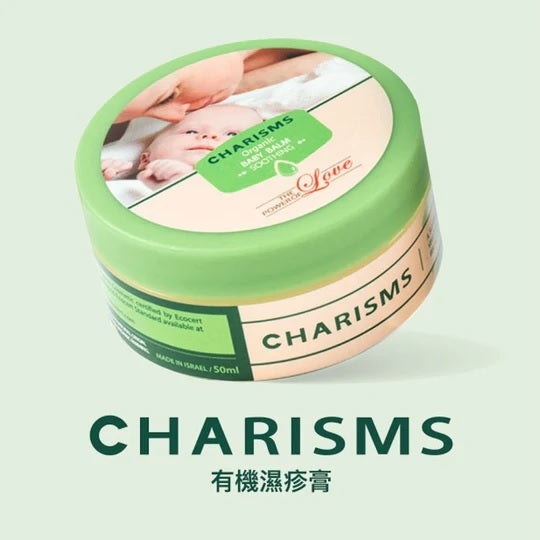
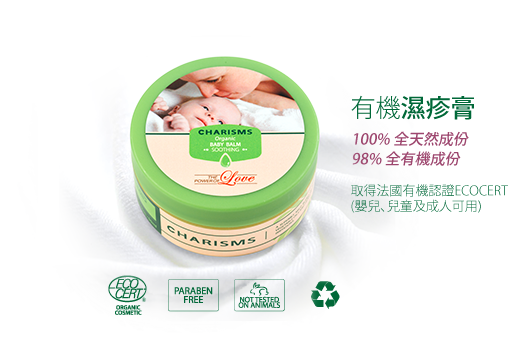
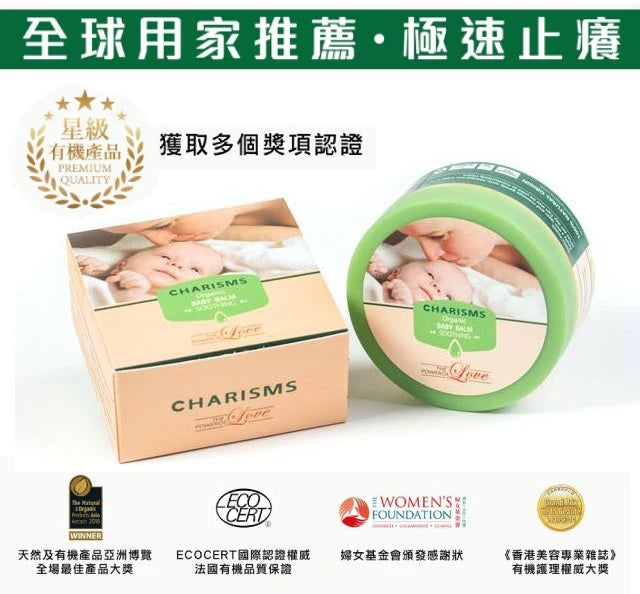

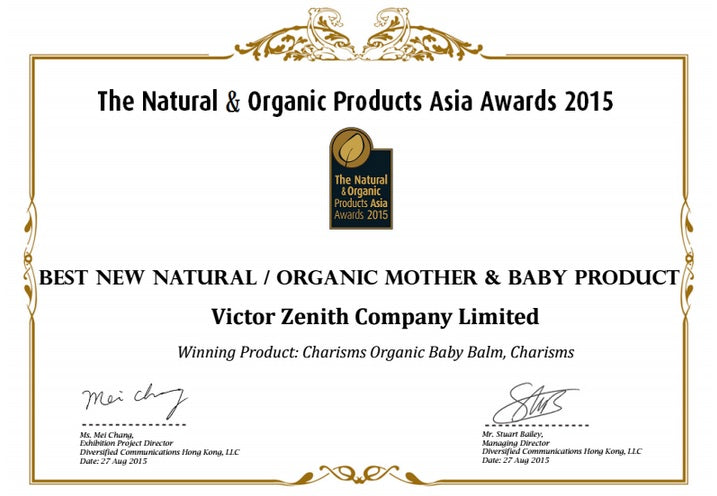
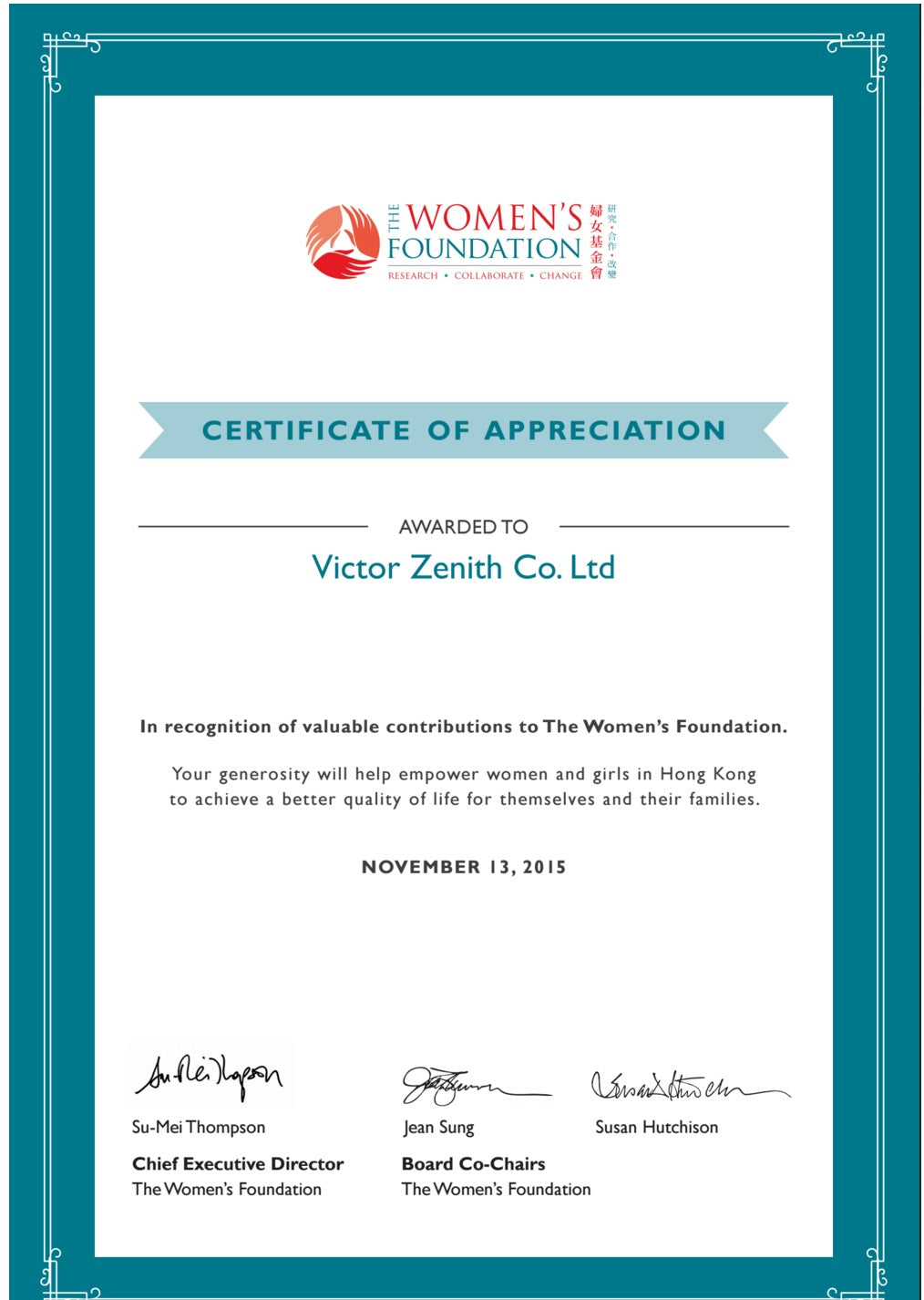

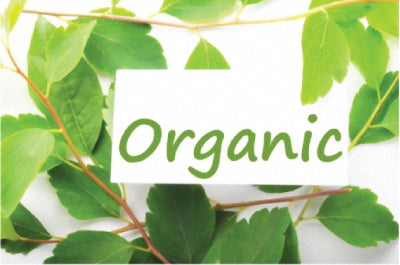
What is organic
"Organic" products must contain 100% natural organic ingredients.
Products that have passed international organic certification not only require natural ingredients, but also attach importance to obtaining raw materials through "organic" cultivation, and avoid the use of chemical synthetic fertilizers and pesticides in the growth and manufacturing process of the ingredients used.
"Organic products" are more refined than "pure natural products," requiring that the natural ingredients, during cultivation, growth, extraction, and production, be free from genetic mutations and artificial chemical additives. Products with international organic certification are subject to strict oversight. Compared to conventional products, "organic" products contain no chemicals or harmful ingredients that could adversely affect human skin and health. Because they lack artificial additives and contain a high concentration of valuable ingredients extracted from organic plants, organic products have a relatively high absorption capacity, thus enhancing the product's effectiveness.
There are many real-life testimonials that show that after using CHARISMS Organic Eczema Cream, their eczema was significantly improved or cured.
View all-
User sharing (How comfortable it is to leave th...
Maggie herself also has housewife hands. She often needs to use different cleaning products to clean the house, so her hands will become ulcerated, dry and peeling. CHARISMS Organic Eczema...
User sharing (How comfortable it is to leave th...
Maggie herself also has housewife hands. She often needs to use different cleaning products to clean the house, so her hands will become ulcerated, dry and peeling. CHARISMS Organic Eczema...
-
User sharing (Jenifer & Haris)
Jennifer's baby boy, Haris, started to have eczema on his face after he was one month old, and then it spread to his hands and feet. He had scratches and...
User sharing (Jenifer & Haris)
Jennifer's baby boy, Haris, started to have eczema on his face after he was one month old, and then it spread to his hands and feet. He had scratches and...
-
User sharing (blessings to Ye Qing)
Winsome's baby girl, Ye Qing, suffered from eczema on both cheeks and sometimes on the inside of her elbows. She was red, swollen and itchy. Sometimes she would even scratch...
User sharing (blessings to Ye Qing)
Winsome's baby girl, Ye Qing, suffered from eczema on both cheeks and sometimes on the inside of her elbows. She was red, swollen and itchy. Sometimes she would even scratch...
-
User sharing (Restore the beauty cream)
Yoko's six-month-old daughter, Coconut Tang, already had dry skin. Combined with eczema and scalp irritation, Yoko experienced dryness, flaking, and redness. After being recommended CHARISMS Organic Eczema Cream by a...
User sharing (Restore the beauty cream)
Yoko's six-month-old daughter, Coconut Tang, already had dry skin. Combined with eczema and scalp irritation, Yoko experienced dryness, flaking, and redness. After being recommended CHARISMS Organic Eczema Cream by a...

